
-
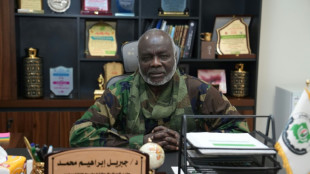 Sudan 'lost all sources of revenue' in the war: finance minister to AFP
Sudan 'lost all sources of revenue' in the war: finance minister to AFP
-
Freezing rain hampers transport in Central Europe

-
 Nuuk, Copenhagen cautiously mull Greenland independence
Nuuk, Copenhagen cautiously mull Greenland independence
-
'Proving the boys wrong': Teenage racers picked for elite driver programme
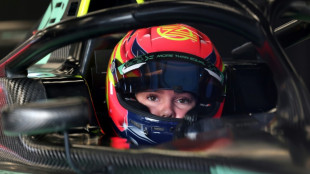
-
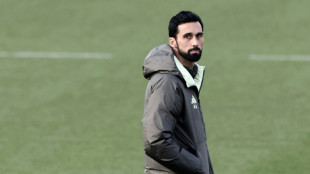 Mbappe absent from training as Arbeloa takes charge at Real Madrid
Mbappe absent from training as Arbeloa takes charge at Real Madrid
-
Iran worries push up oil price as world stocks diverge

-
 Volvo Cars pauses battery factory after fruitless partner search
Volvo Cars pauses battery factory after fruitless partner search
-
Social media harms teens, watchdog warns, as France weighs ban

-
 Central bank chiefs voice 'full solidarity' with US Fed, Powell
Central bank chiefs voice 'full solidarity' with US Fed, Powell
-
Greece airspace shutdown exposes badly outdated systems

-
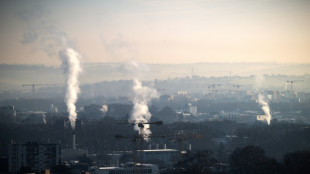 France climate goals off track as emissions cuts slow again
France climate goals off track as emissions cuts slow again
-
Boeing sells 50 737 MAX jets to leasing group ACG

-
 Freezing rain paralyses transport in Central Europe
Freezing rain paralyses transport in Central Europe
-
Man Utd reach deal to appoint Carrick as interim boss: reports

-
 Trump hits Iran trade partners with tariffs as protest toll soars
Trump hits Iran trade partners with tariffs as protest toll soars
-
Is China a threat to Greenland as Trump argues?

-
 Takaichi says urged S. Korea's Lee to help 'ensure regional stability'
Takaichi says urged S. Korea's Lee to help 'ensure regional stability'
-
South Korean prosecutors set to demand heavy sentence for Yoon

-
 Honduras electoral authorities reject vote recount
Honduras electoral authorities reject vote recount
-
Tractors in Paris to protest EU's trade deal with S. America

-
 Asian markets rise, Iran worries push up oil
Asian markets rise, Iran worries push up oil
-
Williams loses golden oldie clash in final Australian Open warm-up

-
 Kyrgios stands by decision to skip Australian Open singles
Kyrgios stands by decision to skip Australian Open singles
-
Disaster losses drop in 2025, picture still 'alarming': Munich Re
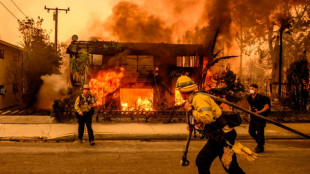
-
 Williams, 45, loses in first round of final Australian Open warm-up
Williams, 45, loses in first round of final Australian Open warm-up
-
Doncic scores 42 points but Lakers humbled by Kings

-
 'Serious threat': Indonesia legal reform sparks rights challenges
'Serious threat': Indonesia legal reform sparks rights challenges
-
Rodgers misery as Texans rout Steelers to advance in NFL playoffs

-
 Morocco's Bono 'one of best goalkeepers in the world'
Morocco's Bono 'one of best goalkeepers in the world'
-
Salah and Mane meet again with AFCON final place on the line

-
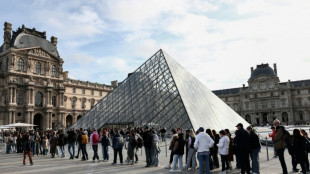 French museum fare hikes for non-European tourists spark outcry
French museum fare hikes for non-European tourists spark outcry
-
In 'big trouble'? The factors determining Iran's future
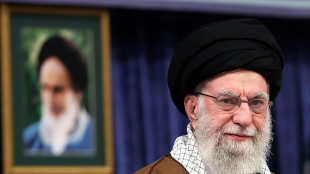
-
 Osimhen finds AFCON scoring touch to give Nigeria cutting edge
Osimhen finds AFCON scoring touch to give Nigeria cutting edge
-
Trump announces tariffs on Iran trade partners as protest toll rises

-
 Sabalenka favourite at Australian Open but faces Swiatek, US threats
Sabalenka favourite at Australian Open but faces Swiatek, US threats
-
Gay Australian footballer Cavallo alleges former club was homophobic

-
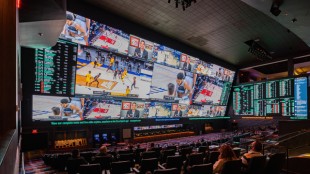 Global Sports Brand U.S. Polo Assn. Announced as Official Jersey and Apparel Sponsor for the Legendary Snow Polo World Cup St. Moritz
Global Sports Brand U.S. Polo Assn. Announced as Official Jersey and Apparel Sponsor for the Legendary Snow Polo World Cup St. Moritz
-
Trump has options on Iran, but first must define goal
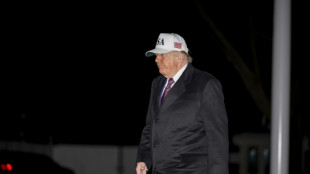
-
 Paris FC's Ikone stuns PSG to knock out former club from French Cup
Paris FC's Ikone stuns PSG to knock out former club from French Cup
-
Australia's ambassador to US leaving post, marked by Trump rift
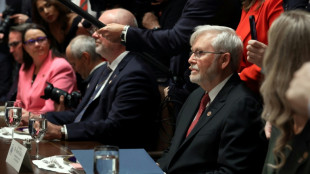
-
 Slot angered by 'weird' Szoboszlai error in Liverpool FA Cup win
Slot angered by 'weird' Szoboszlai error in Liverpool FA Cup win
-
Szoboszlai plays hero and villain in Liverpool's FA Cup win

-
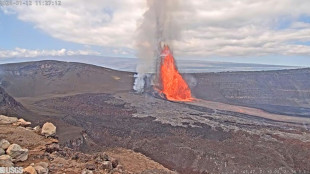 Hawaii's Kilauea volcano puts on spectacular lava display
Hawaii's Kilauea volcano puts on spectacular lava display
-
US stocks at records despite early losses on Fed independence angst
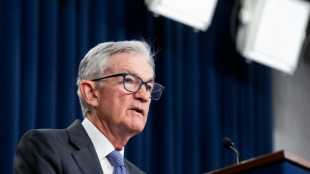
-
 Koepka rejoins PGA Tour under new rules for LIV players
Koepka rejoins PGA Tour under new rules for LIV players
-
Ex-France, Liverpool defender Sakho announces retirement
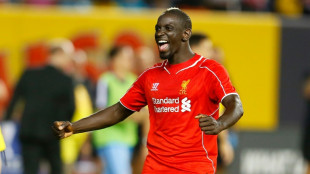
-
 Jerome Powell: The careful Fed chair standing firm against Trump
Jerome Powell: The careful Fed chair standing firm against Trump
-
France scrum-half Le Garrec likely to miss start of Six Nations

-
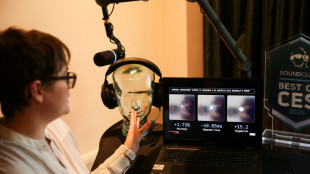 AI helps fuel new era of medical self-testing
AI helps fuel new era of medical self-testing
-
Leaders of Japan and South Korea meet as China flexes muscles


Webb telescope: NASA to reveal deepest image ever taken of Universe
NASA administrator Bill Nelson said Wednesday the agency will reveal the "deepest image of our Universe that has ever been taken" on July 12, thanks to the newly operational James Webb Space Telescope.
"If you think about that, this is farther than humanity has ever looked before," Nelson said during a press briefing at the Space Telescope Science Institute in Baltimore, the operations center for the $10 billion observatory that was launched in December last year and is now orbiting the Sun a million miles (1.5 million kilometers) away from Earth.
A wonder of engineering, Webb is able to gaze further into the cosmos than any telescope before it, thanks to its enormous primary mirror and its instruments that focus on infrared, allowing it to peer through dust and gas.
"It's going to explore objects in the solar system and atmospheres of exoplanets orbiting other stars, giving us clues as to whether potentially their atmospheres are similar to our own," added Nelson, speaking via phone while isolating with Covid.
"It may answer some questions that we have: Where do we come from? What more is out there? Who are we? And of course, it's going to answer some questions that we don't even know what the questions are."
Webb's infrared capabilities allow it to see deeper back in time to the Big Bang, which happened 13.8 billion years ago.
Because the Universe is expanding, light from the earliest stars shifts from the ultraviolet and visible wavelengths it was emitted in, to longer infrared wavelengths -- which Webb is equipped to detect at an unprecedented resolution.
At present, the earliest cosmological observations date to within 330 million years of the Big Bang, but with Webb's capacities, astronomers believe they will easily break the record.
- 20 year life -
In more good news, NASA deputy administrator Pam Melroy revealed that, thanks to an efficient launch by NASA's partner Arianespace, the telescope could stay operational for 20 years, double the lifespan that was originally envisaged.
"Not only will those 20 years allow us to go deeper into history, and time, but we will go deeper into science because we have the opportunity to learn and grow and make new observations," she said.
NASA also intends to share Webb's first spectroscopy of a faraway planet, known as an exoplanet, on July 12, said NASA's top scientist Thomas Zurbuchen.
Spectroscopy is a tool to analyze the chemical and molecular composition of distant objects and a planetary spectrum can help characterize its atmosphere and other properties such as whether it has water and what its ground is like.
"Right from the beginning, we'll look at these worlds out there that keep us awake at night as we look into the starry sky and wonder as we're looking out there, is there life elsewhere?" said Zurbuchen.
Nestor Espinoza, as STSI astronomer, told AFP that previous exoplanet spectroscopies carried out using existing instruments were very limited compared to what Webb could do.
"It's like being in a room that is very dark and you only have a little pinhole you can look through," he said, of current technology. Now, with Webb, "You've opened a huge window, you can see all the little details."
S.Barghouti--SF-PST




